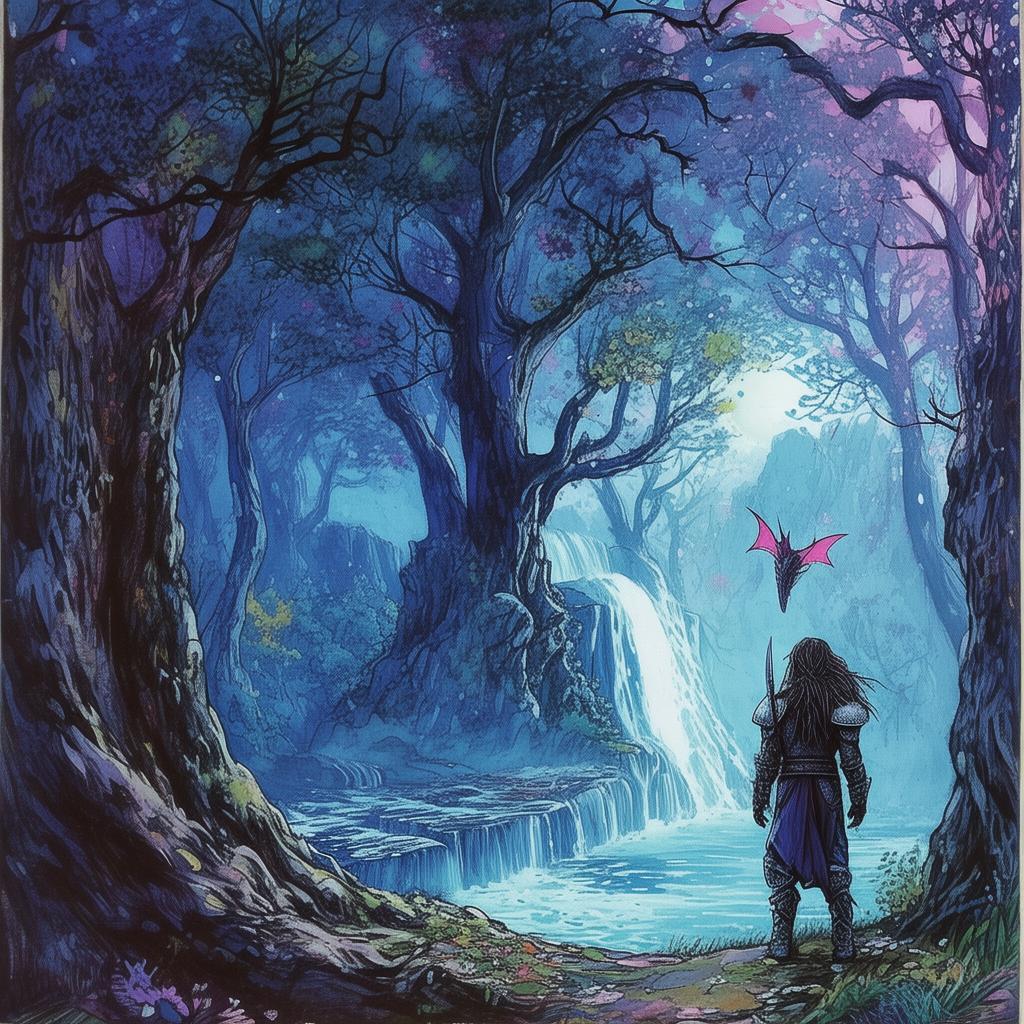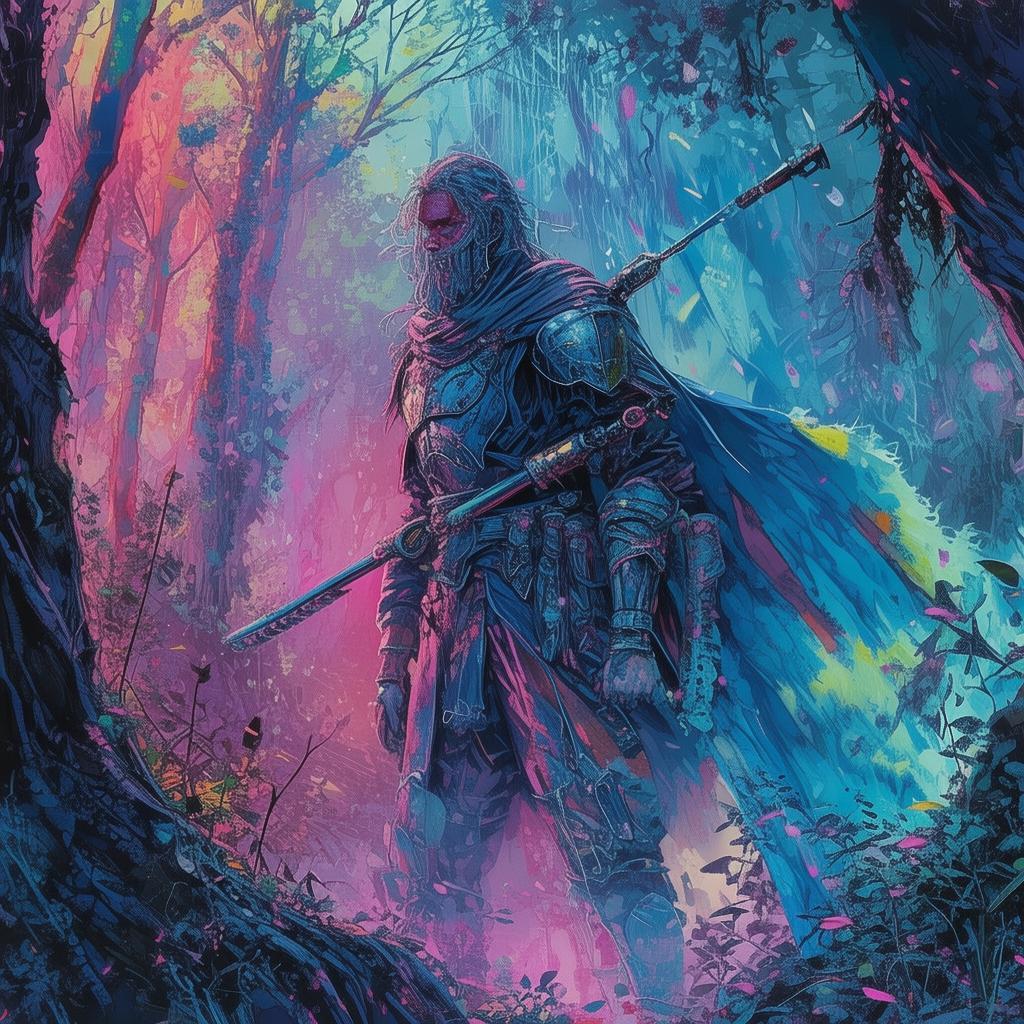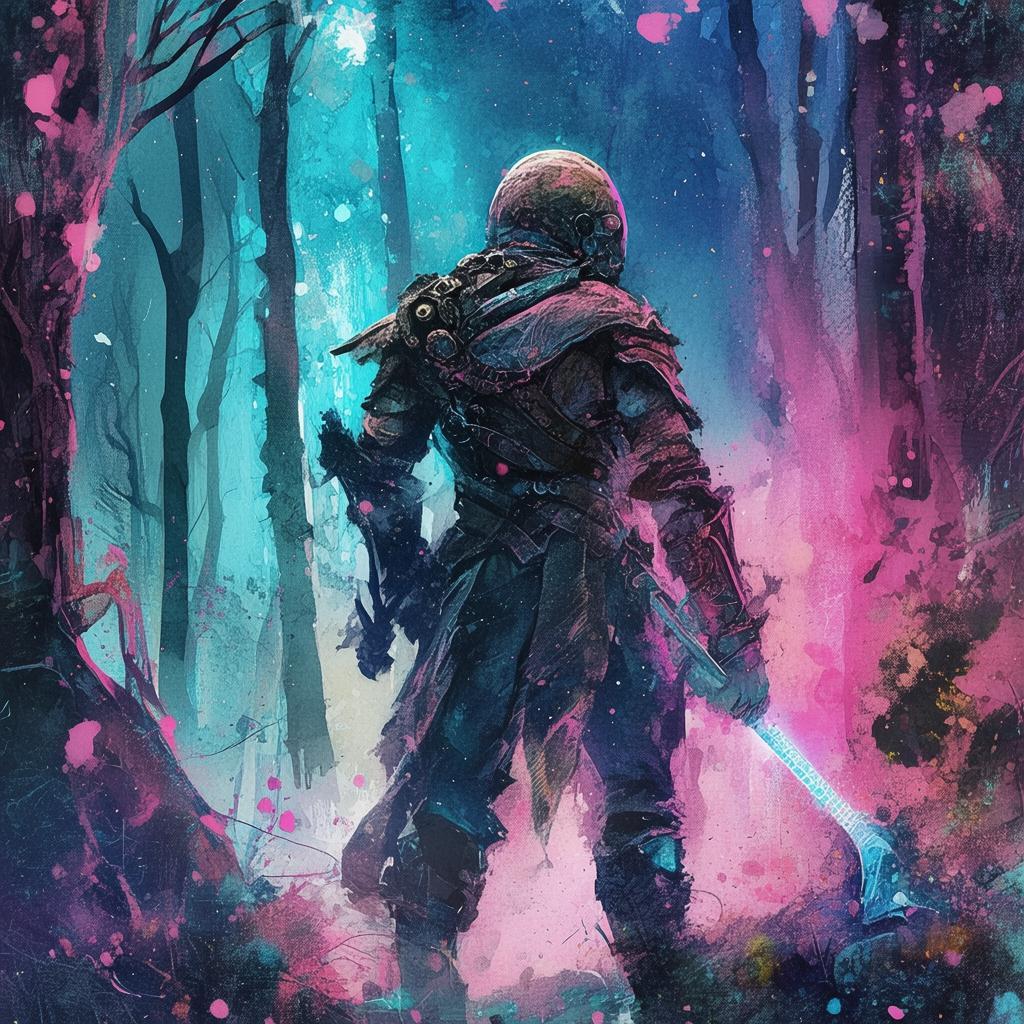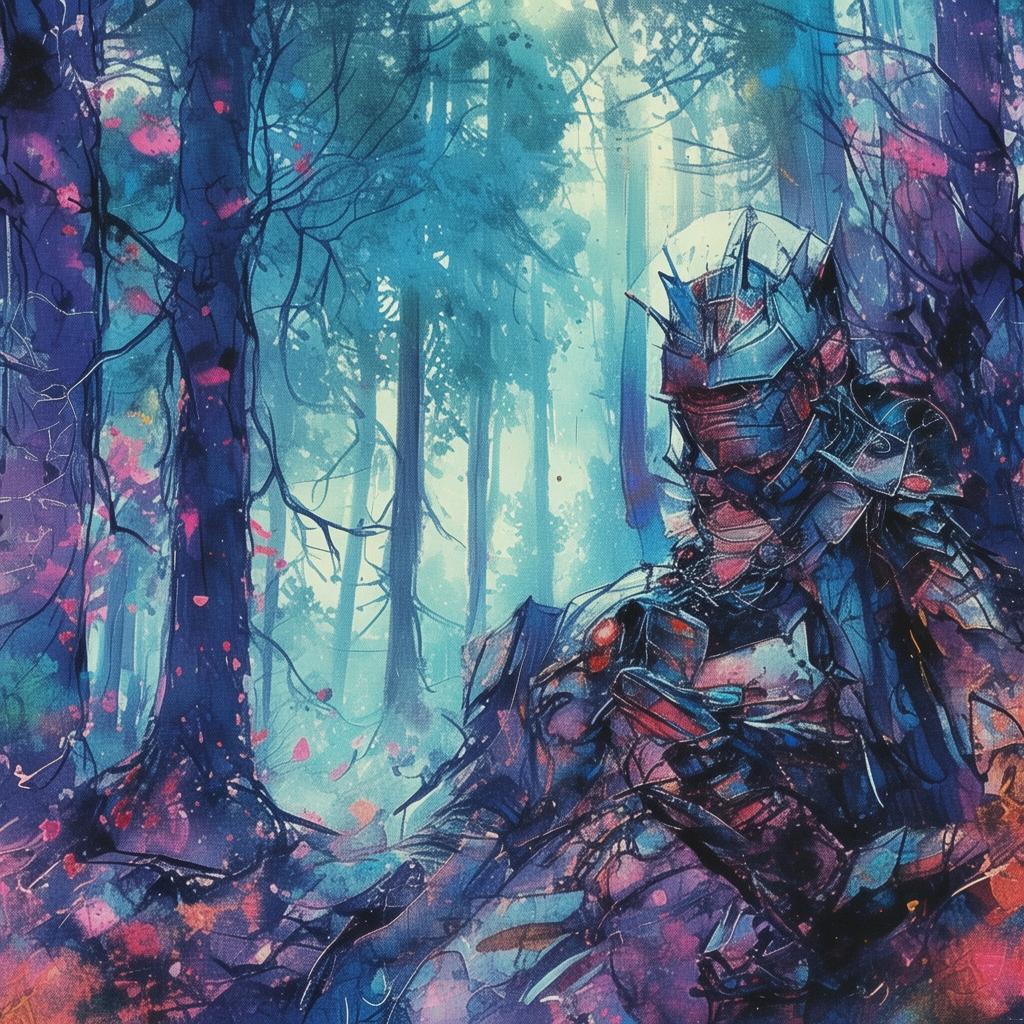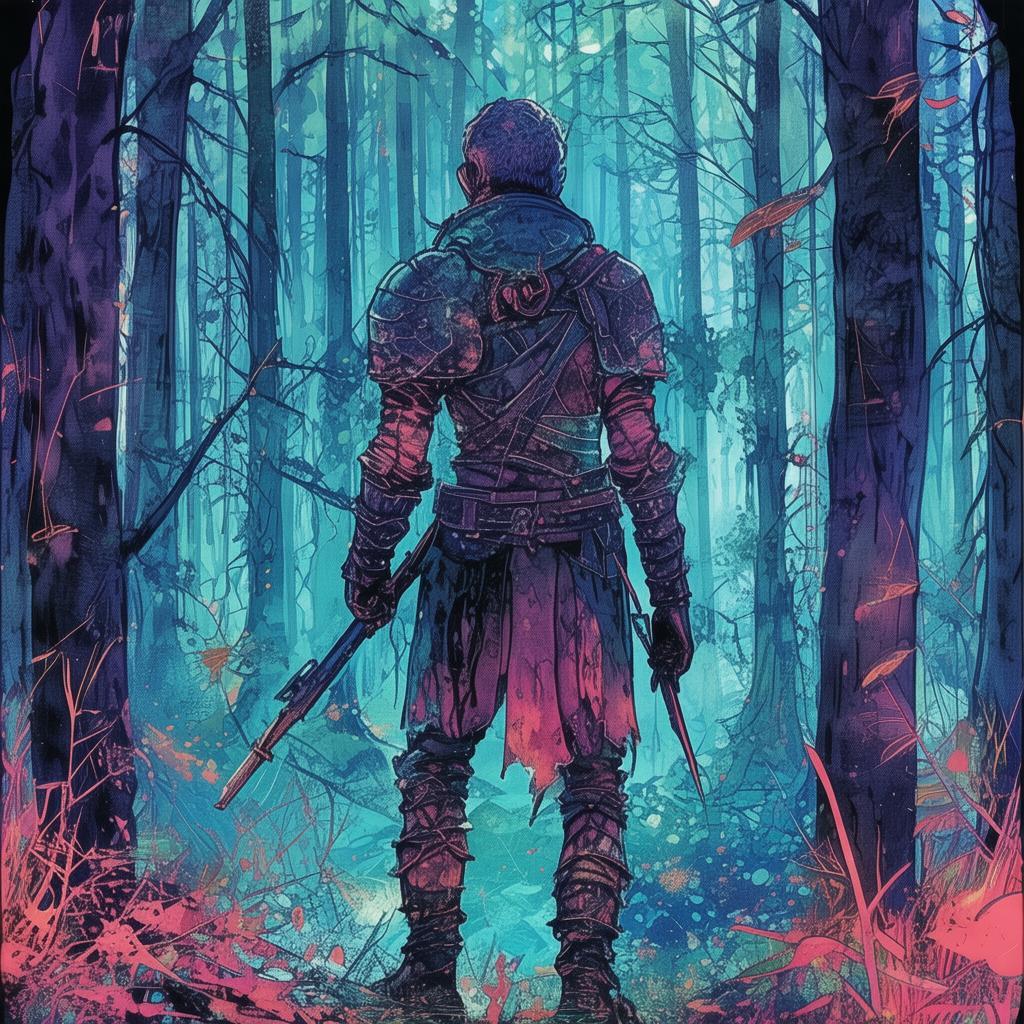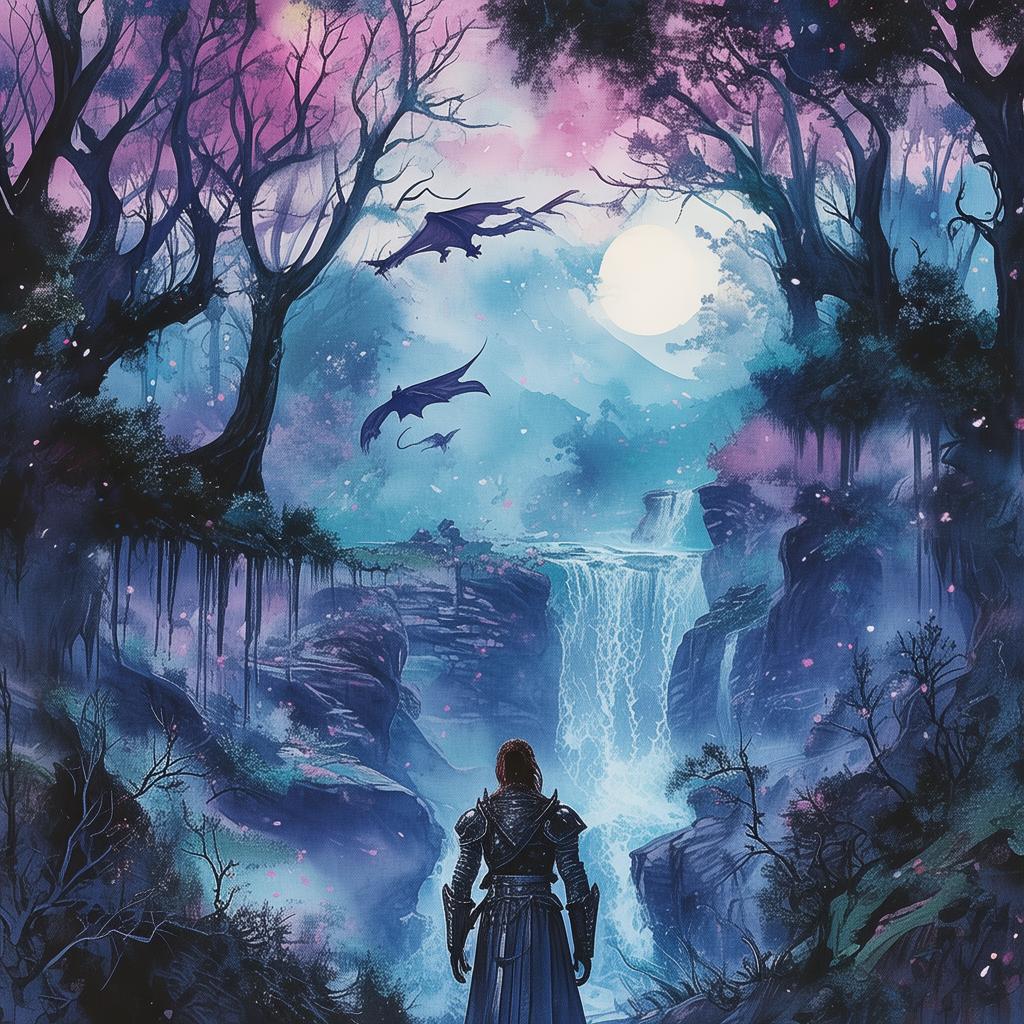The Qing Xu Requiem: Echoes of the Forsaken City
In the heart of the ancient city of Qing Xu, where the moon's pale light filtered through the dense fog, the whispers of the dead clung to the cobblestone streets like the mist that never dissipated. The city had long been forsaken, its once-proud buildings reduced to ruins, and its citizens to ghostly echoes of a bygone era. But for one young artist named Lian, Qing Xu was not just a place of decay; it was a canvas waiting to be painted with the stories of those who had passed before her.
Lian had always been drawn to the strange and the macabre, her imagination fueled by tales of the supernatural. It was during a summer visit to her great-aunt's abandoned house that she stumbled upon an old, tattered book hidden behind a dusty shelf. The title, "The Qing Xu Requiem," intrigued her, and as she began to read, the book's pages seemed to hum with a ghostly energy.
The Qing Xu Requiem was no ordinary tale; it was a ghostly opera, a collection of stories that detailed the lives and deaths of Qing Xu's cursed inhabitants. Each story was a haunting melody, a reminder of the city's dark history. Lian was particularly captivated by the story of Xiao Mei, a young girl who had fallen in love with a man from the upper class, only to be betrayed and thrown into the river, her body never found.
As Lian delved deeper into the book, she began to experience strange visions, as if the spirits of the city were reaching out to her. One night, she had a dream in which Xiao Mei appeared before her, her eyes full of sorrow and a plea for help. From that moment on, Lian felt an inexplicable connection to the city's lost souls.
One day, while exploring the ruins of the old city, Lian stumbled upon a hidden cave. Inside, she found an ancient, ornate box. The moment she opened it, a haunting melody escaped, and with it, a swarm of shadows that seemed to take on the forms of the people described in the Qing Xu Requiem. The spirits were trapped, bound by a spell that kept them from the afterlife.
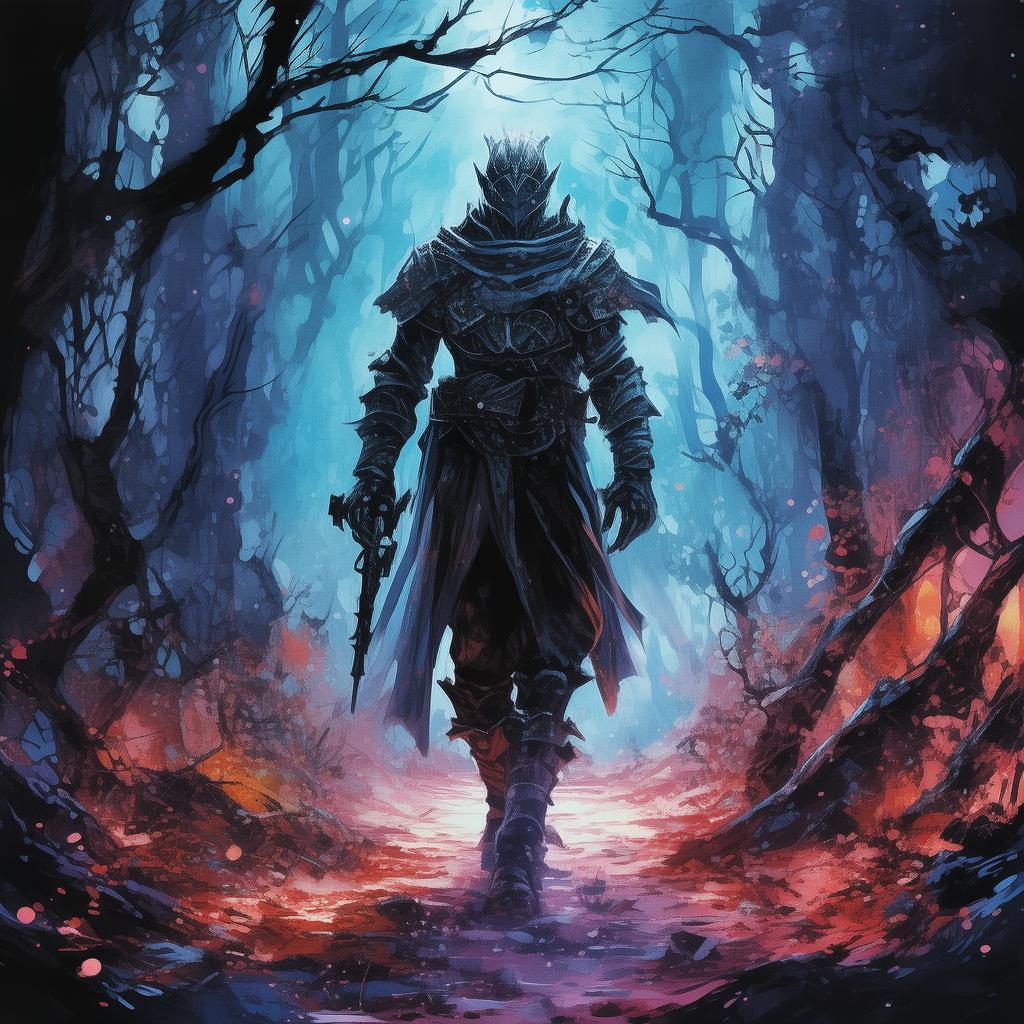
Lian realized that she had to break the spell, but she needed help. She sought out the wise old herbalist, Master Hu, who had lived in Qing Xu his entire life. Master Hu told her that the key to releasing the spirits was a rare flower that bloomed only once every hundred years, in the heart of the city's most ancient forest.
With the help of Master Hu, Lian ventured into the forest, braving the dangers that lay within. She encountered mythical creatures and faced trials that tested her courage and resolve. Each obstacle brought her closer to the flower, but also to the understanding of the city's true curse.
Finally, after what felt like an eternity, Lian reached the heart of the forest and found the blooming flower. As she plucked it, the ground beneath her feet trembled, and the spirits of Qing Xu surged forward, their chains breaking as they embraced the light. In their final moments, the spirits shared their stories with Lian, their voices echoing through the forest as they were released into the afterlife.
The city of Qing Xu, once cursed, began to thrive again. The ruins were rebuilt, and the people returned, their lives filled with new purpose and a deeper appreciation for the history that had once been lost. Lian's art now told the stories of Qing Xu, her brushstrokes capturing the beauty and the tragedy that had once haunted its streets.
The Qing Xu Requiem had not only saved the city but had also saved Lian. She had learned that sometimes, the line between the living and the dead is blurred, and that it is through compassion and understanding that one can bridge the divide. And so, the legend of the ghostly opera of the dead and the undead lived on, a testament to the enduring power of love, loss, and redemption.
✨ Original Statement ✨
All articles published on this website (including but not limited to text, images, videos, and other content) are original or authorized for reposting and are protected by relevant laws. Without the explicit written permission of this website, no individual or organization may copy, modify, repost, or use the content for commercial purposes.
If you need to quote or cooperate, please contact this site for authorization. We reserve the right to pursue legal responsibility for any unauthorized use.
Hereby declared.
